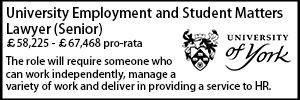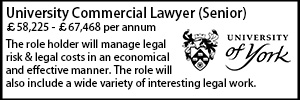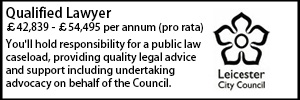Public law children cases: latest judgments
- Details
 Sarah Blackmore and Jacqueline Thomas analyse the latest judgments in public law children proceedings.
Sarah Blackmore and Jacqueline Thomas analyse the latest judgments in public law children proceedings.
K (Children), Re [2019] EWCA Civ 184
The central issue of the appeal was whether the first instance judge was wrong to make a finding that the appellant father had sexually abused his 6-year-old daughter. The father contended that the evidence was inadequate to support the judge’s findings.
Anisa had lived with her parents and 13-year-old sister. She made allegations to her teacher at her mosque of physical and sexual abuse against her father. This led to referrals and the father moved out of the home. The local authority initiated care proceedings and there was a four-day fact finding hearing. The father sought to appeal the finding of significant sexual harm.
There were two stands to the evidence. The investigation into Anisa’s statements to the teacher and the accounts given by the workers who supervised the father’s contact. In their accounts they said they had briefly seen the father with what they thought was an erection. The father argues that the evidence of the teacher was wrong to be relied on and the accounts of the contact workers were speculative and incompatible.
The Court of Appeal largely dismissed the appeal. They reiterated that they would rarely reverse a trial judge’s findings of primary fact before listing nine fact specific reasons why the appeal failed that rigorous hurdle (page 33). The Court of Appeal departed from the judge’s findings in respect to the finding that the father had an erection at contact as they found the evidence was too uncertain to form a sound basis. However, despite setting the finding of the contact workers aside, it did not taint the judge’s primary finding of sexual abuse and the judge was entitled to make the findings she did.
Transcript: https://www.bailii.org/ew/cases/EWCA/Civ/2019/184.html
L-W Children [2019] EWCA Civ 159
Court of Appeal judgment allowing the mother’s appeal to overturn a finding of failure to protect.
At first instance, HHJ Garland-Thomas found the mother had failed to protect her daughter (“L”), and her other children from physical abuse by her partner (“GL”). GL had been found to have inflicted serious non-accidental bruising to L. The mother appealed and it was argued on her behalf there was insufficient evidence for the judge to make such a finding.
The Court of Appeal allowed the mother’s appeal on the basis there was failure to show a causative link between the facts found and the alleged risk to the child. There was no evidence to lead to a finding that the mother failed to protect her children.
King LJ commented that courts at fact finding hearings must not fall into a trap of assuming too easily that, if a person was living in the same household as the perpetrator, a finding of failure to protect is almost inevitable. Even where one partner has returned from prison for serious crimes, that does not mean the other parent has failed to protect children in allowing the partner home, unless by reasons of one of the facts connected with his offending or some other relevant behaviour those children are put at risk of suffering significant harm.
Transcript: https://www.bailii.org/ew/cases/EWCA/Civ/2019/159.html
G (Children: Fair Hearing), Re [2019] EWCA Civ 126 (07 February 2019)
Procedural appeal against interim care orders by a mother who stated that she was subjected to improper judicial pressure that led to the orders being granted without opposition on her part. Appeal allowed.
These proceedings concerned two young children, who were made the subject of police protection orders after an altercation between the parents led to the mother’s arrest. The local authority subsequently issued care proceedings on an urgent basis after the mother withdrew her consent to the children being accommodated.
Lord Justice Peter Jackson referred to the transcript of the hearing, particularly to an exchange between the judge and the mother’s counsel where the judge told counsel “if I hear the evidence, which I’m more than willing to do – my list is empty for this afternoon – I shall make findings and she’ll be stuck with them”. The mother’s counsel asked for further time to take instructions. The case was adjourned for 13 minutes, after which the mother gave her consent to the interim care order.
The mother appealed saying she was deprived of a meaningful opportunity to oppose the making of the orders. Lord Justice Peter Jackson allowed the appeal, concluding that there had been a serious procedural irregularity and that the mother did not get a fair hearing.
Transcript: https://www.bailii.org/ew/cases/EWCA/Civ/2019/126.html
Sarah Blackmore and Jacqueline Thomas are joint head of chambers at Spire Barristers. Jacqueline can be reached by
















































